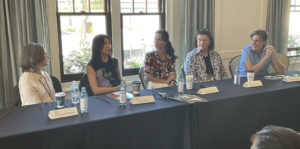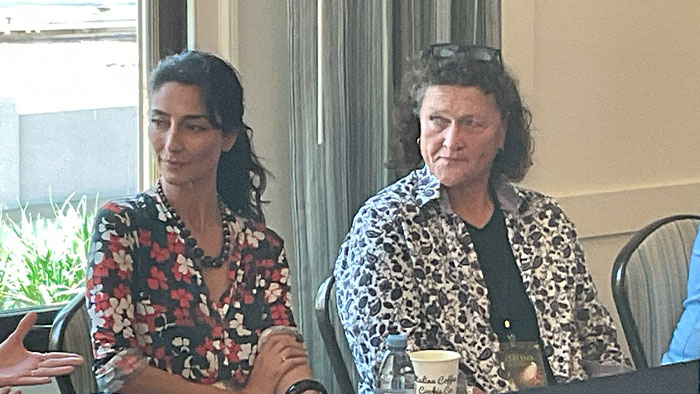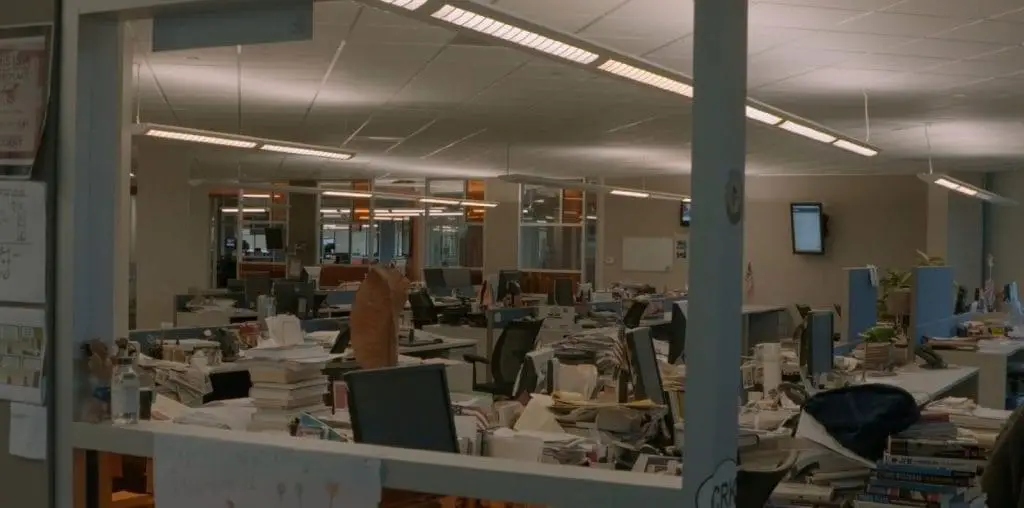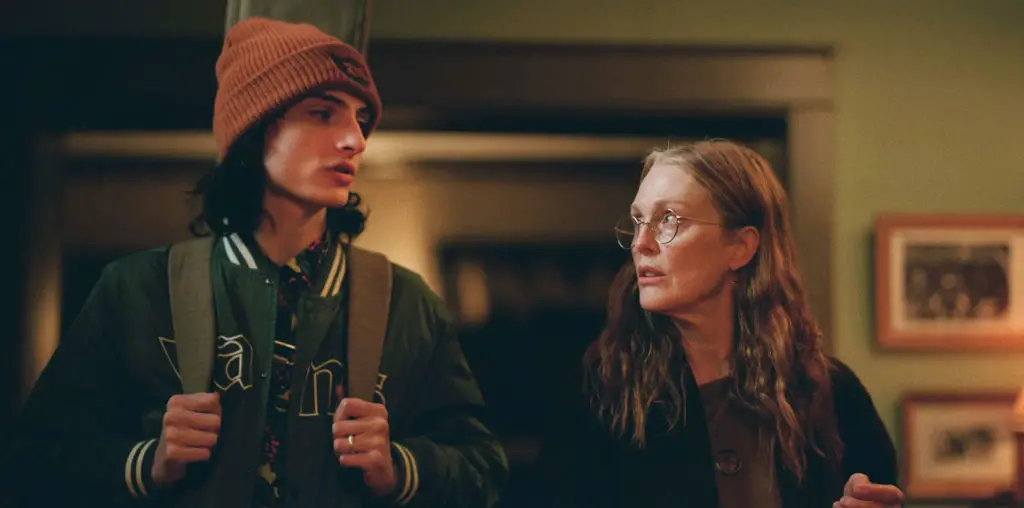
Necar Zadegan reflected on her stage roots, specifically her time working opposite Robin Williams in The Bengal Tiger at the Baghdad Zoo. This experience was transformative, both for her career and her approach to acting. Williams’ generosity and rigor left a lasting impression on her. “People always think Robin was all over the place,” she said, “but he was disciplined—he went to Juilliard, and it showed. Working with him was like being in a master class every day.” This experience on stage shaped her approach to working on TV shows like Mayor of Kingstown, allowing her to bring depth and a sense of spontaneity to her roles.
The Pros and Cons of Self-Taping
A lively discussion unfolded about self-taping versus in-room auditions, a timely topic given the significant shift toward self-taping in recent years. Dot-Marie Jones, a surprise addition to the panel known for her role in Glee, passionately voiced her preference for in-person auditions. “When you’re in the room, they can ask you to try it another way,” she said, adding, “I’d drive five hours just to get in that room because you can feel the energy, make adjustments, and really show what you can do.”
In contrast, Amy Tsang expressed her enjoyment of self-taping, explaining how it made her feel like a “mini-filmmaker” for a day. “You get to present what you want to the people watching,” Tsang said, highlighting the control it gives actors over their auditions—a definite advantage for those who experience nerves in traditional audition settings.

Necar Zadegan (Actor) Mayor of Kingston and Dot-Marie Jones (Actor) Glee
“I’d drive five hours just to get in that room because you can feel the energy, make adjustments, and really show what you can do.”
Comedy Versus Drama: The Eternal Debate
Another point of discussion was the perceived divide between comedy and drama. Necar Zadegan shared her perspective, having begun her career in comedy but later transitioning into more dramatic roles. She expressed that while dramatic roles often garner more respect, comedy requires immense technical skill and timing, and it’s equally challenging in its own right. Donna Morong echoed this sentiment, suggesting that it is often harder for dramatic actors to transition into comedy, as comedy demands a specific type of innate timing that isn’t easily taught.
Dot-Marie Jones, known for her comedic timing, spoke about her experiences balancing the two genres. She recalled the unpredictability of comedy, especially in a live setting like Glee. “It’s all about the moment,” Jones said, “you never know how the audience or even your co-stars will react, and that’s the beauty of it.” This unpredictability is what makes comedic acting exhilarating and daunting at the same time.
Typecasting and Breaking the Mold
The panelists also touched on the challenges of typecasting, especially in an industry that is often quick to label actors. Tsang, as an Asian actress, spoke about the shifts in casting opportunities she has observed over her career. “There’s more room for all of us now,” she said, referring to how streaming services and new platforms have made space for more diverse stories. With the success of projects like Crazy Rich Asians, she noted a broader acceptance and openness in Hollywood, allowing her and others like her to audition for roles that aren’t solely defined by ethnicity.


